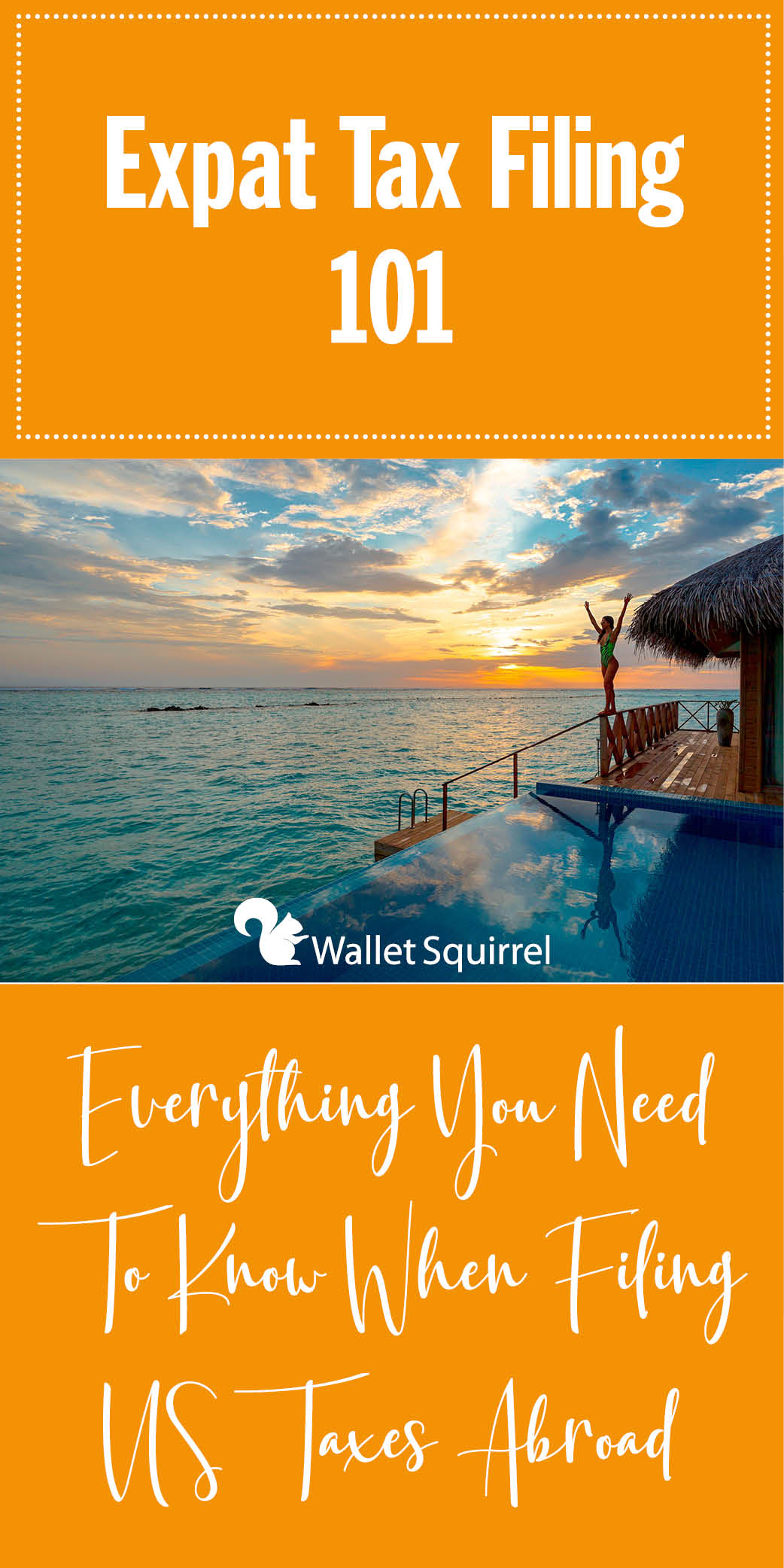Expat Tax Filing 101: Everything You Need to Know When Filing US Taxes Abroad

To help give you more clarity on this matter, here are a number of crucial things that you must know about how to file taxes online from abroad:
Expats Have to File Their Tax Returns
The American taxation system does not discriminate based on where in the world an individual citizen resides. Everyone, including American citizens and Green Card holders, is required to record all of their income on Form 1040 every year, no matter where they live in the country.
Expats Receive an Automatic Filing Extension
Expats usually get a two-month automatic filing extension, therefore the filing date for expats is June 15th. One of the reasons expats are given more time is because they are frequently required to file a foreign tax return in their country of residence as well. If an expat owes US income tax, it is customary for them to pay it by April 15th in order to avoid interest and late payment penalties, even if it is merely an estimated amount that has been paid on time in the previous year. However, because of the COVID-19 epidemic, the reporting and payment deadlines for all Americans have been extended even further, this time to July 15th, for the year 2020.
How Do Tax Treaties Help Expats?
The tax treaties that the United States has signed with around 60 other nations do not exclude expats from filing. However, some expats, most notably students, teachers, and researchers, as well as retired expats and athletes, benefit from stipulations inside a tax treaty. Tax treaties generally determine which country has priority in taxing particular forms of revenue, and they frequently allow the two countries to share personal and financial information in order to combat tax evasion.
What is the Foreign Tax Credit?
The Foreign Tax Credit allows expats to claim tax credits in the United States equal to the amount of foreign taxes paid on the same income. Form 1116 can be used to claim it. It applies to both earned and passive income, although it cannot be used in conjunction with the Foreign Earned Income Exclusion.
Missed Paying Your Taxes? You Can Still Catch Up!
Americans living overseas who were unaware of the filing requirement can catch up without suffering penalties according to the IRS’s Streamlined Procedure amnesty program. To do so, expats must file their last three federal tax returns and six FBARs (for any of the last six years that qualify), as well as self-certify that their earlier failure to file was not due to purposeful evasion of their filing obligations. However, you must respond quickly because the amnesty is only accessible until the IRS approaches you.
The 4 Things to Think About When Filing Taxes While Working Abroad
1. Self-employment taxes
Even if they have to pay foreign social security taxes, Americans who are self-employed overseas must still pay US social security and Medicare taxes. Neither the Foreign Earned Income Exclusion nor the Foreign Tax Credit can be used to eliminate self-employment taxes. In fact, the only way to avoid them is to incorporate internationally and work for your new business.
2. Owning a business abroad
Expats who own a foreign-registered company must report it to the IRS using Form 5471. While US registered single owner limited liability businesses can be reported on Form 1040, expats must first file Form 8832 to have their foreign-registered single owner limited liability firms treated in the same way. Foreign registered business accounts are likewise eligible for FBAR reporting by the owner (or signatory). Expats who pay foreign corporate taxes in the United States are eligible for tax credits in the United States.
3. Taxation of foreign investments and pensions
Gains from international investments and dividends from foreign pensions are taxed in the United States, even if they are not earned in the country from which they are derived. Expats should be especially cautious when investing in international mutual funds, which the IRS considers PFICs (Passive Foreign Investment Companies) and hence requires extra reporting. Foreign investment accounts—including pensions—could also prompt FBAR and FATCA compliance.
4. Claim the Foreign Earned Income Exclusion
Expats can claim the Foreign Earned Income Exclusion on Form 2555 when filing their federal return, which allows them to deduct a set amount of their foreign earned income (up to $108,700 in 2021) from US income tax.
To be eligible, expats must either prove that they live permanently in another nation or that they spent less than 35 days in the United States during the time period they are claiming for.
Only earned income, not passive income such as rentals or payouts from pensions or investments, can be eliminated.
Don’t Know How to File Taxes While Abroad?
TFX is a friendly and experienced firm that specializes in US taxes filing abroad. We are here to help you stay on the right side of IRS regulations so you can focus on running your business or living your life! To get started, contact us today and we’ll answer any questions you have about expat taxes and how our services work, what they include, or anything else related to international tax filings with the IRS.

TFX is a women-owned tax firm that offers all U.S. tax services — for both American citizens and non-citizens with U.S. tax filing requirements. From straightforward expat tax preparation to complex cases involving multiple factors — we’ve handled it all for over 25 years.



